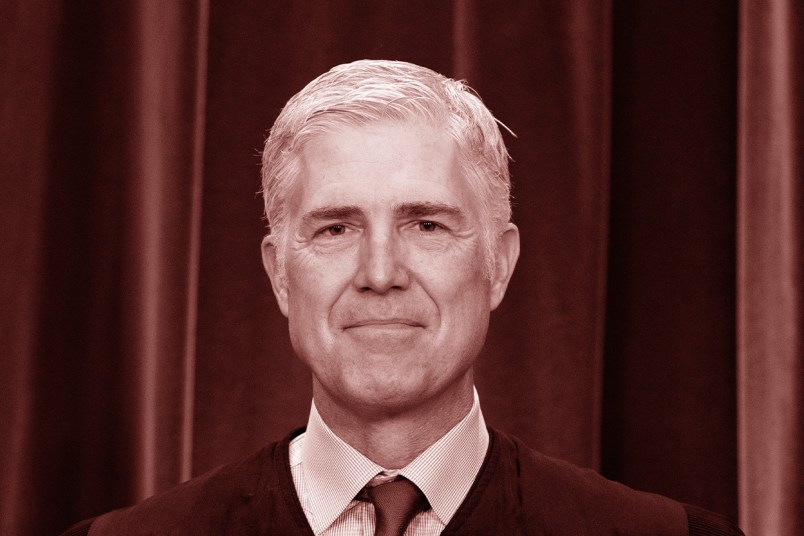Gutting the Environmental Protection Agency runs in the Gorsuch family.
Anne Gorsuch, the justice’s mother, was former President Ronald Reagan’s first EPA administrator, and the first female administrator in the agency’s history.
She slashed the agency’s budget by a quarter, staffed its departments with people from the regulated industries and presided over a plummeting number of cases brought against polluters. She even bragged that she’d reduced the thickness of a manual of clean water regulations from six inches to a half inch, according to the Washington Post.
Her philosophy now has an heir.
In his concurrence, her son celebrates the Court’s ruling in West Virginia v. EPA, curtailing the EPA’s powers to regulate climate change-causing emissions: “I am pleased to concur,” with a decision that “helps safeguard” a “foundational constitutional promise,” he concludes. He then lays out an outline for the many ways the Court can reject other agency actions in the future.
Justice Elena Kagan, writing for the dissenting liberals, points out the novelty in the conservative justices’ approach, as the majority, she writes, announces “the arrival of the ‘major questions doctrine,’ which replaces normal text-in-context statutory interpretation with some tougher-to-satisfy set of rules.”
But Gorsuch is busy popping champagne over the new regime of anti-administrative state decisions that he says is ascendent.
“In fact, this Court applied the major questions doctrine in ‘all corners of the administrative state,’ whether the issue at hand involved an agency’s asserted power to regulate tobacco products, ban drugs used in physician-assisted suicide, extend Clean Air Act regulations to private homes, impose an eviction moratorium, or enforce a vaccine mandate,” he reels off, naming cases, many of them recent, where the Court blocked agencies from acting.
The major questions doctrine is a perfect tool for the conservative justices to block any agency action they don’t like. It holds that agencies can only take actions that have sweeping economic and political effects — actions on “major questions” — if Congress has been very explicit that the agency has the authority to do those things.
The theory is popular on the right but rarely explicitly invoked by courts, and it has no clear guardrails: What counts as a regulation with major ramifications? How big is major? How explicit did Congress have to be in its delegation of power for it to count?
But Gorsuch couches the new philosophy in the trappings of democracy.
“Admittedly, lawmaking under our Constitution can be difficult,” he writes. “But that is nothing particular to our time nor any accident. The framers believed that the power to make new laws regulating private conduct was a grave one that could, if not properly checked, pose a serious threat to individual liberty.”
That Congress’ glacial pace — and nearly nonexistent pace on environmental legislation in particular — would let climate change run rampant doesn’t seem to perturb him.



